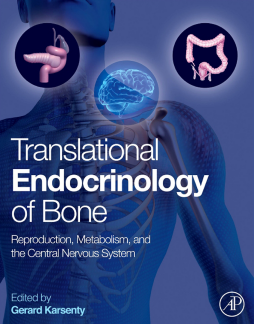
Additional Information
Book Details
Abstract
The use of model organisms together with the power of genetics has profoundly affected our understanding of the physiology of one organ, the skeleton, in two distinct but complementary ways. This is the first translational reference to focus on these major conceptual advances in bone biology and their development in the clinic. Several advances have already been translated into therapies and others are being tested for diseases as different as osteoporosis, type-2 diabetes, and hypo-fertility. This book is a timely reference for both basic and clinical researchers in bone biology and endocrinology.
- Summarizes the latest research and translational applications of how the varied growth and development of bone affects appetite, metabolism, reproduction, and a wide range of endocrine functions
- Provides a common language for bone biologists, endocrinologists, osteologists, and other researchers, such as neuroscientists, who study appetite, fuel metabolism and diabetes, to discuss the development of translational research and new therapeutic strategies for bone, metabolic, and neuro-endocrine diseases.
-
Saves researchers and clinicians time in quickly accessing the very latest details on a broad range of bone research and therapeutics, as opposed to searching through thousands of journal articles
"This is a valuable contribution to the field of bone biology. It is a must read for all researchers in the field of bone pathology. It is also a good book for physicians caring for patients with bone disorders as it provides a review of bone pathology in the context of other body systems." Rating: 4 Stars--Doody.com, May 2, 2014 "…17 articles…discuss the effects of bone on whole-organism physiology and how the study of this discipline aids in the understanding of the pathogenesis of degenerative diseases affecting several organs. Chapters address various hormones and neuromediators ranging from serotonin to osteocalcin, as well as knowledge about the ability of bone to regulate phosphate metabolism."--ProtoView.com, March 2014
